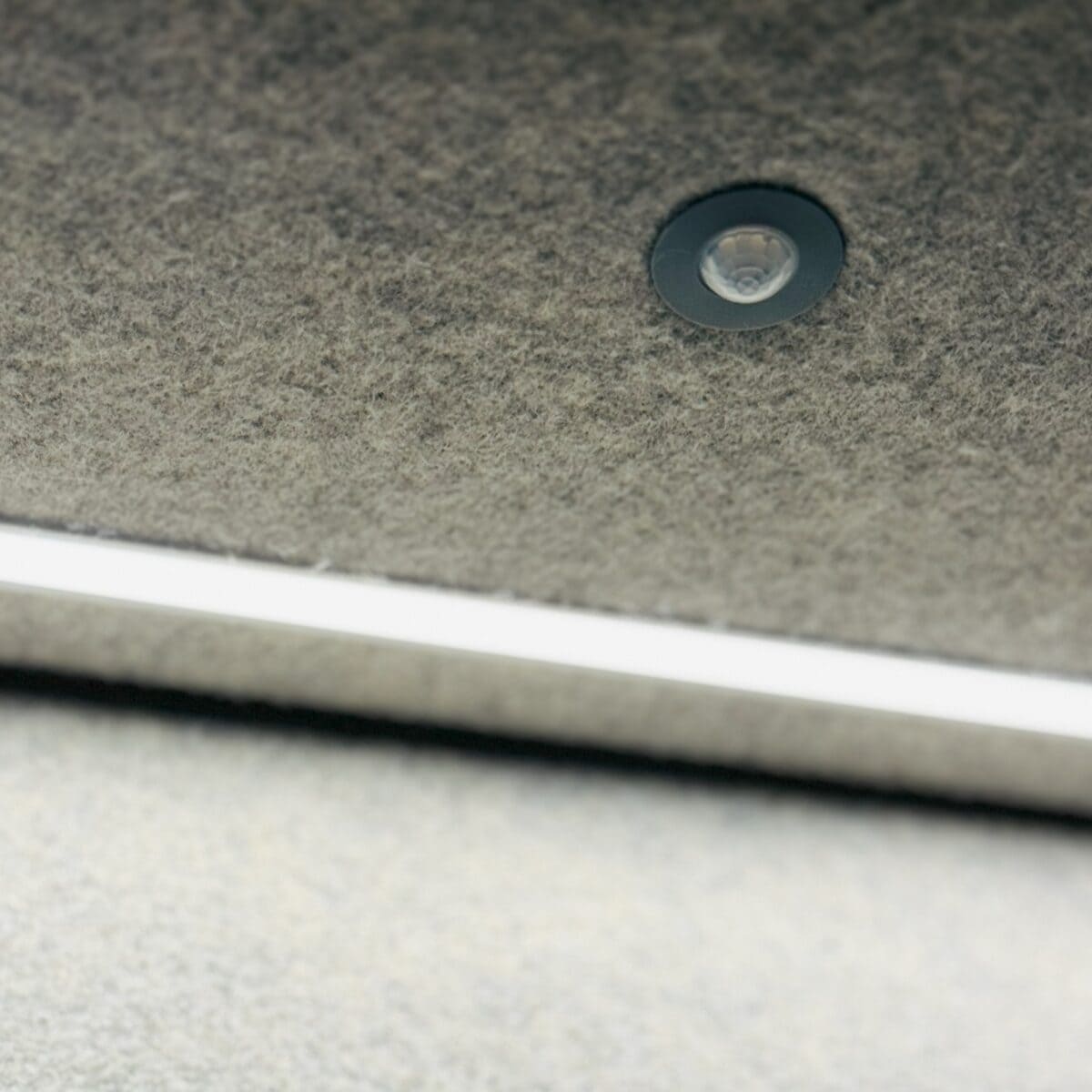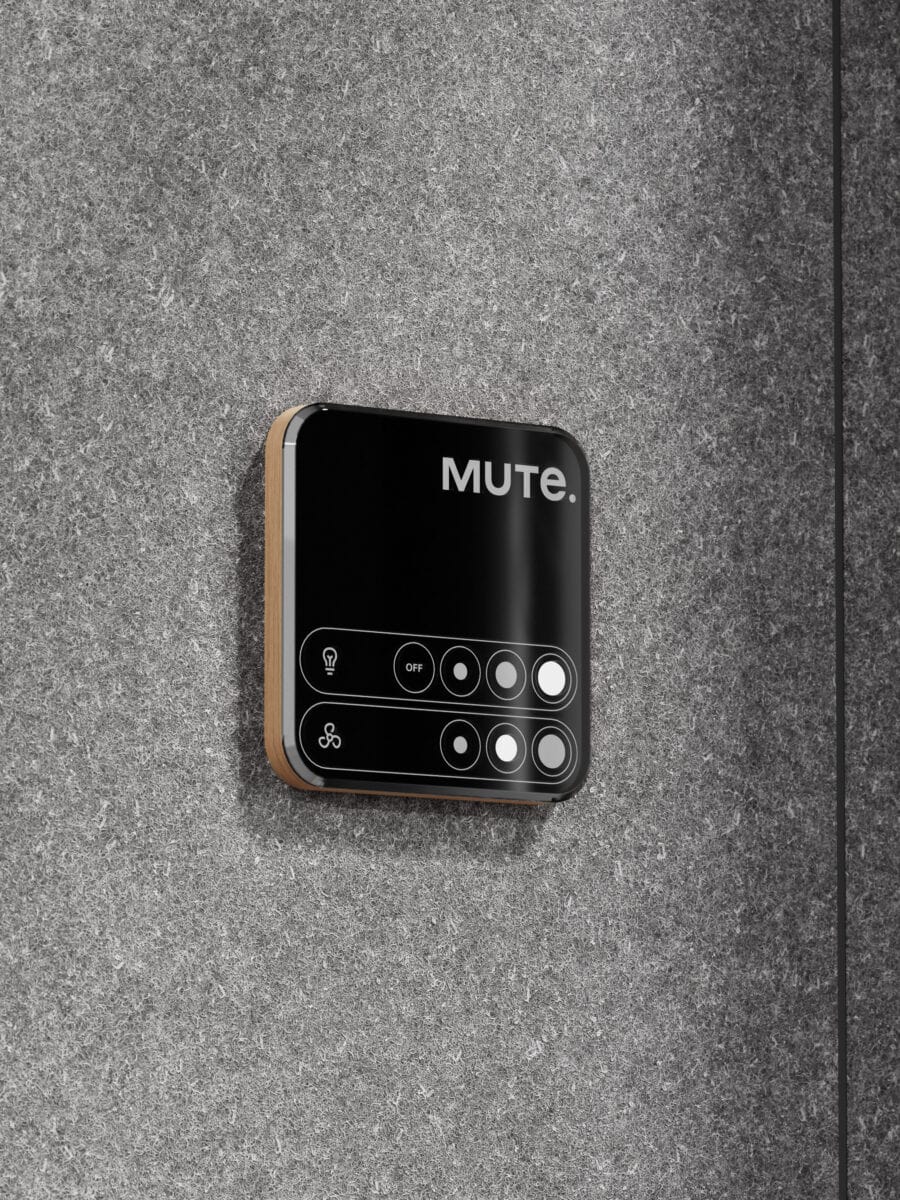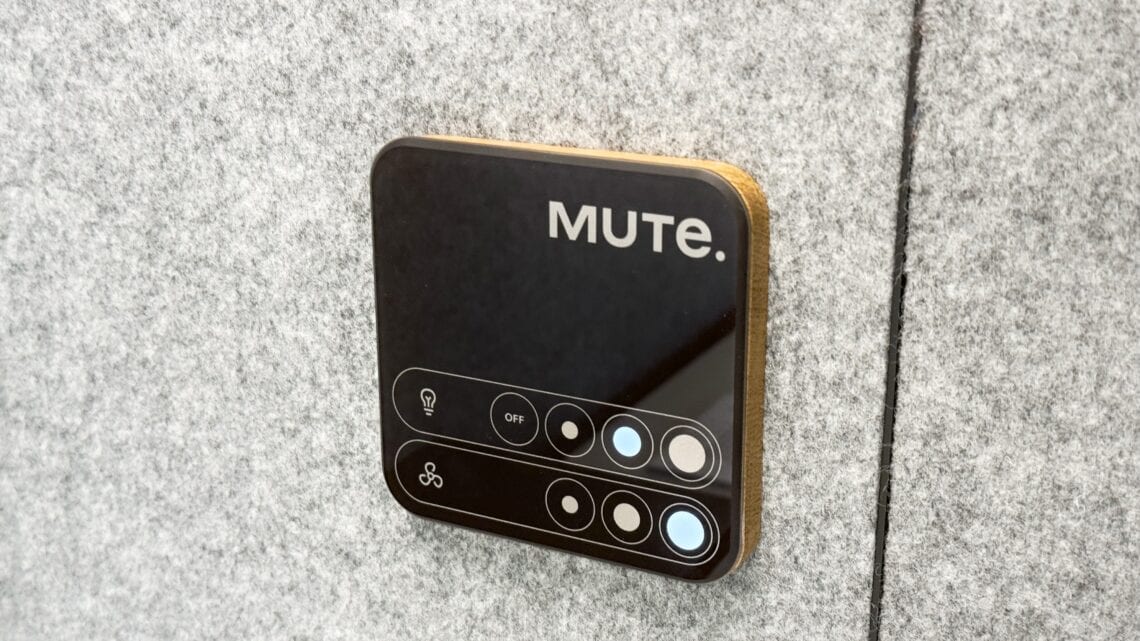Fully automatic ventilation control is standard in telephone and meeting boxes - here we explain how it works and what additional options are available.
A small note on our categorisation: Multiple assignments are possible, i.e. a meeting box that is available both with and without individual control options appears in both categories.
Contents
Fully automatic ventilation control in telephone and meeting boxes
Fully automatic ventilation control is standard in telephone and meeting boxes and works like this: a motion sensor triggers ventilation and lighting as soon as someone enters the booth. As long as there is activity/movement in the box, the ventilation continues to run. After leaving the acoustic box, an after-run of a few minutes ensures fresh air for the next user.

In higher-quality acoustic cubes, additional sensors are used to automatically regulate the strength of the ventilation (see also Air exchange). These include temperature sensors (heat) and CO₂ sensors ("stale air"). A total of three different quality levels can be identified:
- Simple ventilation control: fully automatic on/off via motion sensor
- Ventilation control with an additional sensor: on/off via motion sensor, ventilation intensity via another sensor (e.g. temperature)
- Ventilation control with two additional sensors: On/off via motion sensor, ventilation intensity via two additional sensors (e.g. temperature and CO₂ content of the air)
Customised control option as an accessory
With the last two quality levels listed above, it is usually possible to combine fully automatic ventilation with a manual control option: the fully automatic ventilation can be overridden via a control panel. Depending on the manufacturer, this can be combined with the option of adjusting the intensity of the lighting.
We recommend considering this option, especially in larger meeting boxes where the additional costs for the switching panel are negligible.

Questions, comments & personal advice
Are you missing any information or do you have any questions? Then please leave a comment below! You can also get free advice from us:

